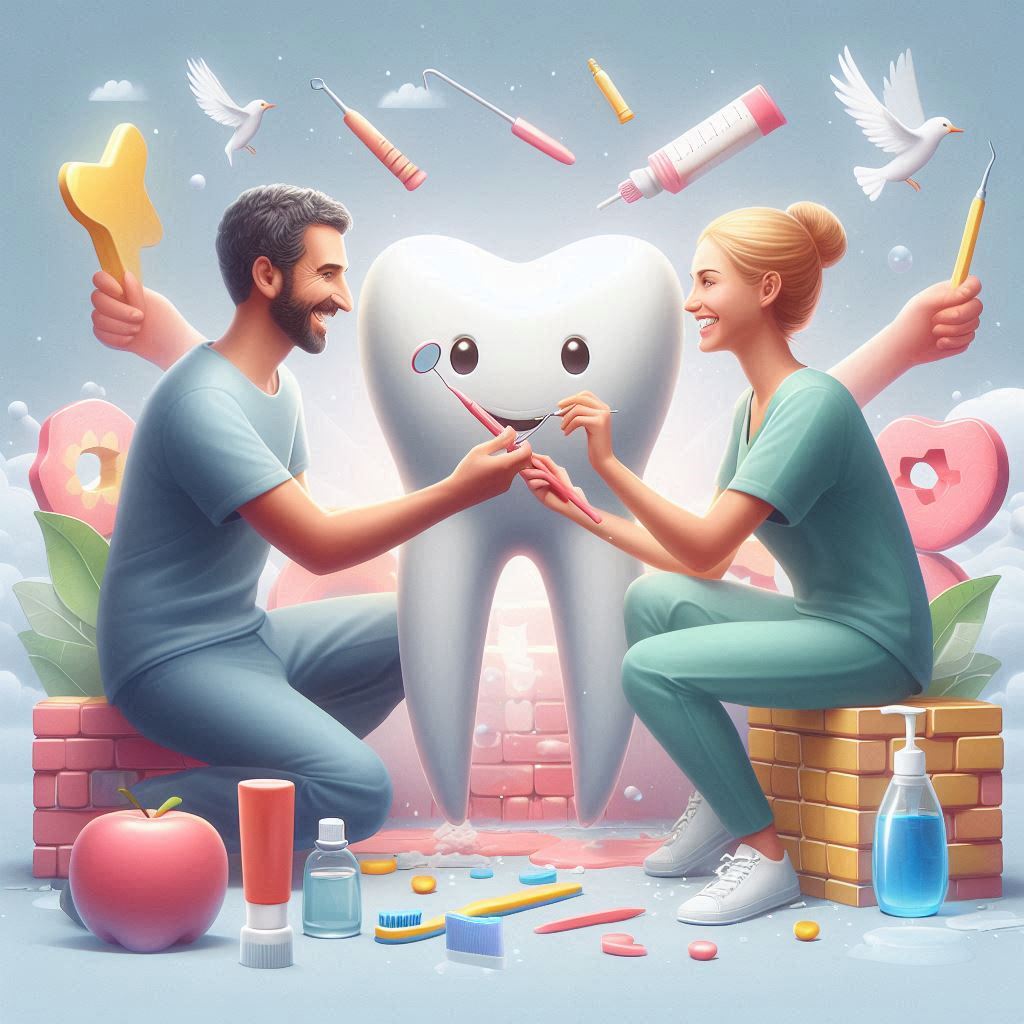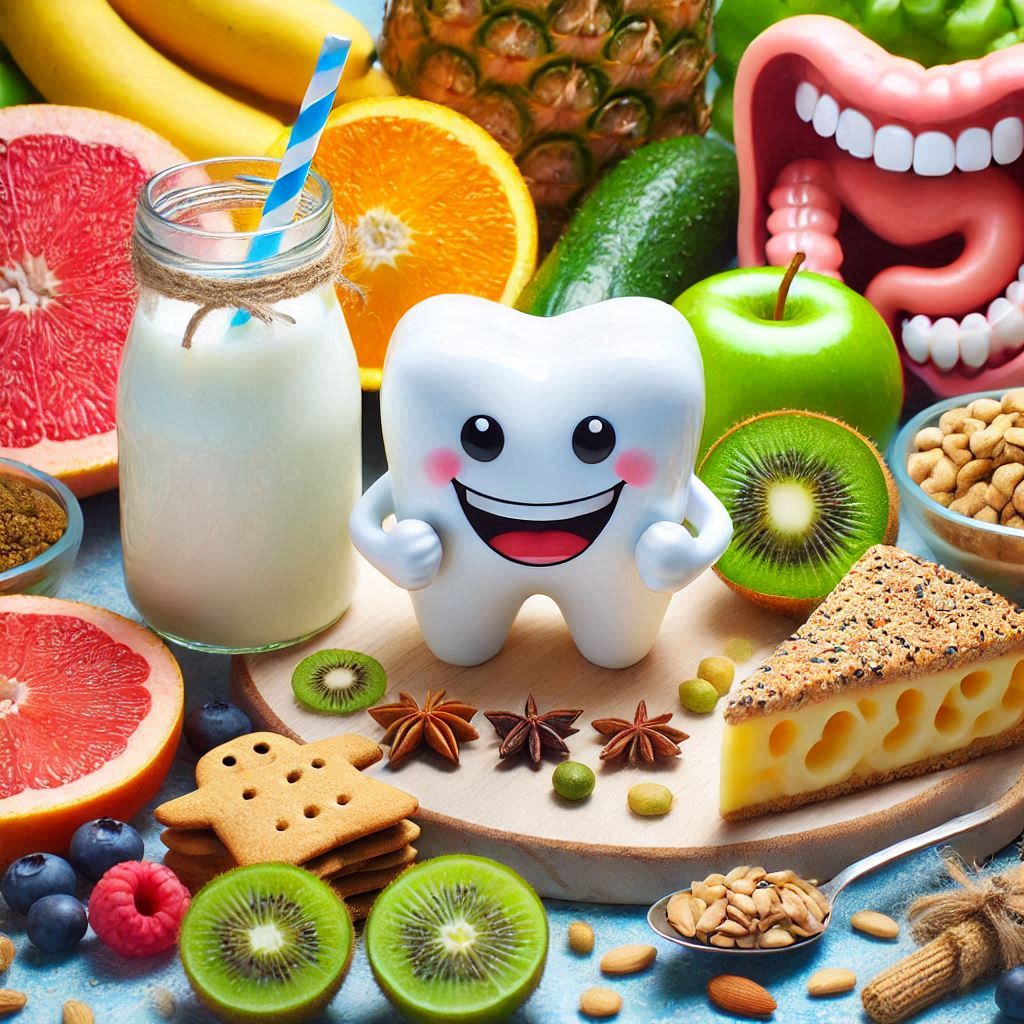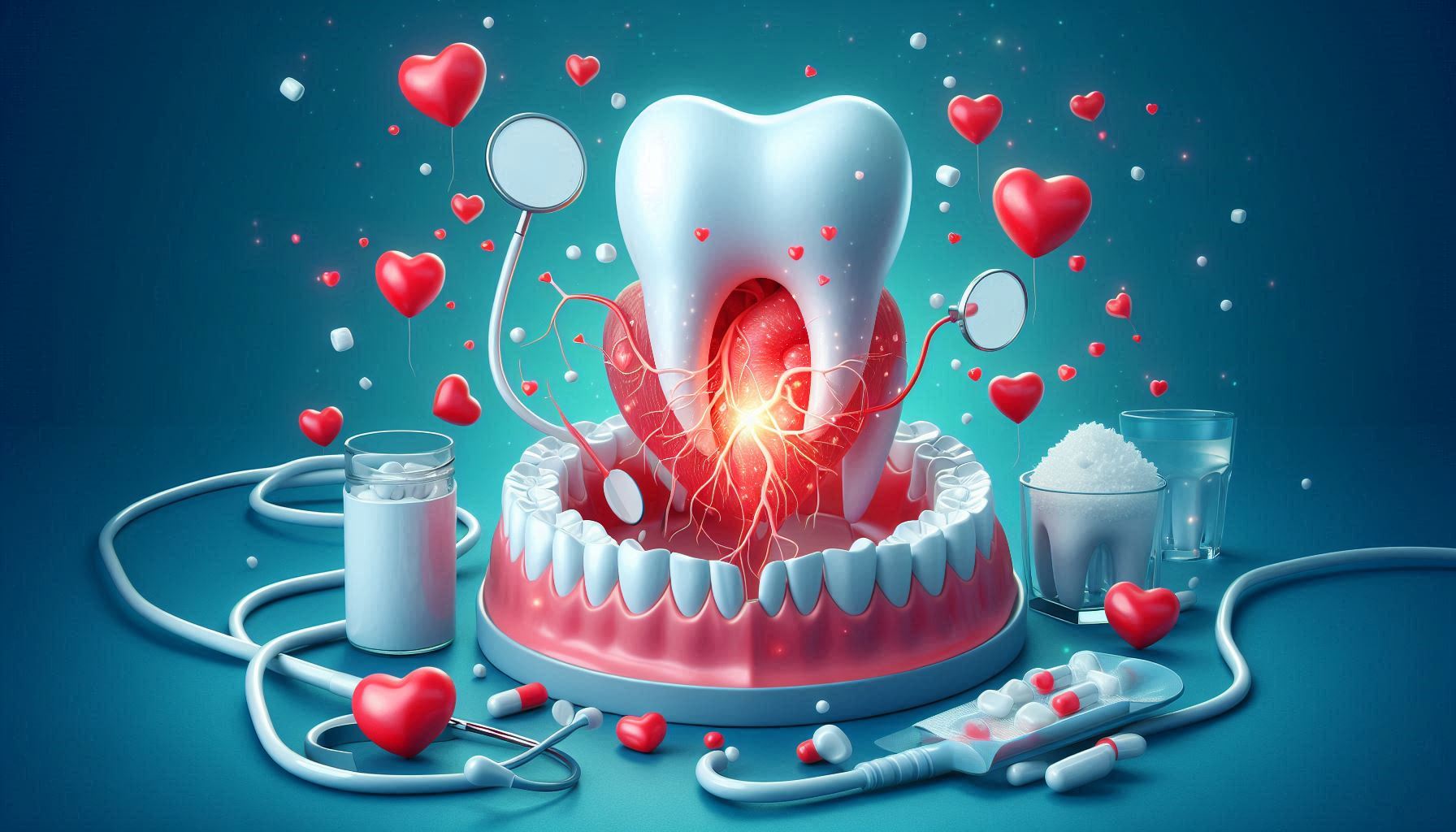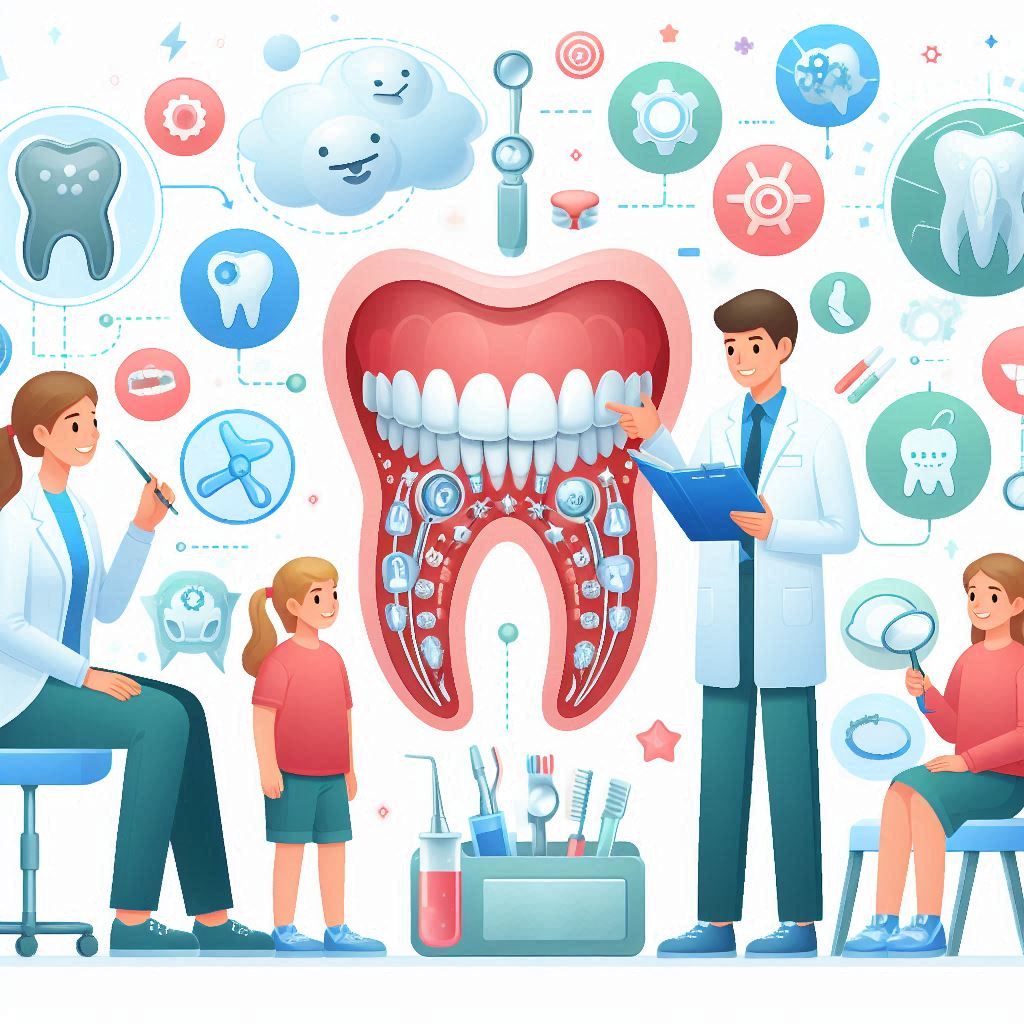Introduction
When we think of what sustains lasting, meaningful relationships—whether romantic, familial, or professional—the first elements that come to mind are usually love, communication, trust, shared experiences, and emotional connection. However, one often-overlooked yet profound factor influencing the strength and authenticity of these connections is oral care. While brushing teeth and visiting the dentist may seem trivial in the grand scheme of relationship-building, oral hygiene plays a pivotal role in how we connect with others, both emotionally and physically.
This guide delves into the critical, often unseen role of oral care in shaping the way we present ourselves, how we engage with others, and ultimately how we foster lasting, authentic relationships. Through scientific research, psychological insights, and real-world examples, we’ll examine the links between oral health and self-confidence, the influence of oral hygiene on social dynamics, and its integral role in both personal and professional relationships.
The Psychological and Emotional Connection Between Oral Health and Self-Confidence
A smile is one of the first things people notice about one another, and it is often a defining feature of how we present ourselves to the world. For many, a bright, healthy smile boosts self-esteem and enhances their confidence. Conversely, poor oral hygiene, dental issues, and bad breath can cause anxiety and self-consciousness, leading individuals to avoid social situations or to feel inadequate.
Oral Care and Self-Image
At the core of relationship-building is how we perceive ourselves. Self-confidence, which is intricately linked to self-image, plays a significant role in how we relate to others. Our appearance, especially our smile, often determines how we project ourselves in social settings. A radiant smile, born from healthy teeth and gums, is not just an outward sign of good oral hygiene; it is a reflection of our internal well-being and a key part of our self-esteem.
A study published in the Journal of Clinical Psychology found that individuals with poor oral health often report lower levels of self-esteem and increased anxiety, particularly when it comes to social interactions. The shame or discomfort of having visibly poor oral hygiene can cause individuals to retreat from social situations, avoiding conversations or even eye contact. For example, individuals with noticeable yellowing of teeth, missing teeth, or chronic bad breath may shy away from public speaking, group settings, or engaging in intimate one-on-one conversations.
On the other hand, those who take active steps to care for their oral health often report feeling better about themselves and more confident in their social interactions. Brushing and flossing regularly, keeping up with dental checkups, and making sure there are no issues like cavities or gum disease contribute to a sense of well-being that radiates outward, facilitating connections and interactions that are positive and comfortable.
The Psychological Implications of Poor Oral Hygiene
Conversely, the psychological toll of poor oral hygiene can be severe. Dental anxiety, a common affliction for many, is often associated with the fear of dental procedures but also with the social repercussions of having visibly poor dental health. This can result in embarrassment and heightened levels of stress, anxiety, or even depression. In a world where image is often closely linked to self-worth, individuals with dental issues may feel less competent in both professional and personal interactions, leading to avoidance behavior or withdrawal from situations that could lead to social rejection.
This stress and self-consciousness can hinder relationship-building. For instance, if an individual feels uncomfortable speaking in close quarters with others due to bad breath or visible dental problems, they may subconsciously isolate themselves, leading to strained relationships. Thus, oral care is not only about the health of the teeth and gums; it’s a significant component of mental and emotional wellness. Addressing oral health concerns can provide a psychological lift, allowing individuals to be more present and engaged in their relationships.
Oral Health and Its Impact on Social Dynamics
Oral hygiene extends far beyond physical well-being; it influences social interactions, shaping our behavior in public, private, and professional settings. Oral health can either facilitate connection or create invisible barriers to building authentic relationships.
Fresh Breath: The Hidden Gatekeeper of Social Interactions
One of the most fundamental aspects of oral care is ensuring fresh breath. Bad breath, or halitosis, can be a significant obstacle in forming new relationships and maintaining existing ones. It often has an immediate, negative impact on how we are perceived by others. Imagine being in a conversation with someone, only to be overwhelmed by an unpleasant smell—this could unintentionally create discomfort and strain the interaction. Studies show that bad breath is one of the most common reasons people feel embarrassed or self-conscious in social situations.
Halitosis can be a result of poor oral hygiene, such as not brushing or flossing regularly, leading to the buildup of food particles and bacteria in the mouth. Conditions such as gum disease, dry mouth, or certain medical conditions can exacerbate the issue. For individuals who are unaware of their own bad breath, social relationships may suffer as they unknowingly push people away. It’s a subtle yet powerful element that can make or break social dynamics.
Moreover, the discomfort of noticing someone else’s bad breath can similarly impact interactions. In social circles, people may avoid close proximity or direct conversation with an individual suffering from halitosis, unintentionally distancing themselves. As such, maintaining fresh breath is not just about personal comfort—it is a significant consideration in building trust and rapport.
The Role of Smiles in Communication and Relationship-Building
The smile is often regarded as a universal symbol of friendliness and openness. It’s a form of non-verbal communication that plays a central role in both establishing and nurturing relationships. A smile signals trustworthiness, empathy, and approachability. Our ability to smile freely and confidently is intimately tied to the health of our teeth. A smile compromised by poor dental hygiene—such as stained, crooked, or decaying teeth—can create a barrier to successful communication and the development of authentic relationships.
Research has shown that people are more likely to engage in positive interactions with others who smile. For example, in a study published in the Journal of Nonverbal Behavior, researchers found that people with attractive, healthy smiles were perceived as more competent and likable in social situations. Conversely, individuals with visible dental issues may be viewed negatively, leading to unintentional social isolation. Maintaining oral health through regular brushing, flossing, and professional cleanings ensures that smiles remain confident and engaging, facilitating meaningful interpersonal connections.
Oral Hygiene as a Reflection of Personal Care
People often interpret personal care and grooming as a sign of respect for oneself and others. Those who maintain good oral hygiene are often seen as disciplined, conscientious, and responsible—qualities that are highly valued in any relationship. When you take care of your oral health, it subconsciously communicates that you care about your well-being, which can extend to the way you care for others.
The Role of Oral Health in Trust-Building in Intimate Relationships
Trust is the foundation of any lasting, healthy relationship—whether romantic, familial, or even friendships. Trust can be built through shared experiences, mutual respect, and open communication. But surprisingly, oral health also plays a crucial role in the development and maintenance of trust within relationships.
Intimacy and Oral Health: A Vital Connection
In intimate relationships, physical touch—especially kissing—is an essential form of communication. Imagine a partner who is overly self-conscious about their breath or dental appearance, avoiding kisses or shying away from close intimacy. This can create emotional distance and strain the bond. Oral hygiene is thus integral to sustaining intimacy and affection in relationships.
Regularly brushing, flossing, and maintaining fresh breath ensures that partners can feel comfortable engaging in physical intimacy without worry or hesitation. For couples, taking the time to address oral health together—whether it’s scheduling dental check-ups or brushing together—can foster a sense of unity and shared care.
Additionally, dental conditions like gum disease or tooth pain can cause physical discomfort, which may negatively affect one’s ability to participate in intimate moments. If an individual is unable to enjoy physical closeness without pain or discomfort, it can lead to feelings of frustration, resentment, or withdrawal. These feelings, if left unaddressed, can erode trust and emotional closeness over time.
The Psychological Aspect of Oral Care in Romantic Relationships
The act of caring for one’s oral health can be seen as an expression of self-love and self-respect, which are essential for fostering healthy, balanced relationships. When one partner actively takes care of their own health, including oral health, it can signal to the other that they are committed to their well-being, which can deepen trust and emotional connection. Additionally, when both partners engage in joint oral health practices, it can reinforce a sense of partnership, shared responsibility, and mutual care, all of which contribute to a strong, lasting relationship.
Oral Care’s Influence on Professional Relationships
In the professional realm, first impressions are often formed based on appearance, behavior, and communication. Oral health is directly tied to how we present ourselves in the workplace and how we are perceived by colleagues, superiors, and clients.
Maintaining Professional Image through Oral Health
In many professional settings, particularly those that require frequent interactions with clients or coworkers, how we appear matters. A confident smile not only conveys competence and approachability but also conveys trustworthiness. For instance, during business meetings, negotiations, or presentations, a healthy, confident smile can help establish rapport and convey confidence in your abilities.
On the contrary, individuals who are self-conscious about their oral health may feel the need to hide their smile or avoid close contact, which could diminish their professional presence. This lack of confidence may lead to reduced effectiveness in communication and lower career success. For example, someone who avoids speaking up in meetings because they are embarrassed about their teeth may miss opportunities to showcase their expertise and ideas.
Additionally, the condition of one’s oral health can influence how others perceive their reliability and professionalism. Well-maintained oral hygiene is often seen as a reflection of someone’s overall attention to detail and responsibility. It suggests that the individual is disciplined and capable of managing their personal health, which can translate into trust and respect in professional settings.
Oral Health in Client Relationships and Networking
Networking plays a significant role in professional growth. Strong relationships with clients, colleagues, and partners are often built on trust and personal connections. Oral health can impact these relationships in subtle yet powerful ways. For example, a client who feels comfortable interacting with you because of your fresh breath, confident smile, and overall professional appearance is more likely to form a lasting, positive connection. These types of relationships can lead to repeat business, strong professional networks, and career advancement.
Building Lasting Relationships Through Oral Care in the Family and Social Circles
The family unit and close-knit social circles provide a fertile ground for building lasting relationships, and oral health plays a subtle yet significant role in these dynamics. Parents, siblings, and close friends often influence each other’s health habits, including oral care.
Teaching Children Healthy Oral Habits
For parents, instilling good oral care habits in children is one of the most impactful ways to ensure they grow up with the tools they need to build strong relationships. Parents who demonstrate the importance of brushing, flossing, and regular dental visits are teaching their children the value of self-care, which will not only benefit their oral health but also impact their social interactions in the future.
The Role of Oral Health in Elder Care
As people age, maintaining good oral health becomes even more critical. For elderly individuals, dental issues can lead to difficulty eating, speaking, and interacting with others, which can cause feelings of isolation. Ensuring that elderly family members receive the proper oral care can help preserve their independence, dignity, and ability to participate in social activities.
Addressing Cultural Perspectives on Oral Care and Relationships
Oral health is viewed differently across cultures, and the significance of a smile or dental appearance varies. In some cultures, the emphasis on a perfect smile is less pronounced, while in others, it is an essential aspect of personal identity and social success. Understanding these cultural differences is key to navigating international relationships, whether personal or professional.
Cultural Variations in Oral Care Practices
Different societies have unique approaches to oral care, from ancient practices to modern-day dental hygiene habits. Understanding these differences can enhance cross-cultural relationships, especially in a globalized world where people from various backgrounds interact more frequently.
The Science Behind Oral Health and Relationship Satisfaction
Recent studies have shown a clear correlation between oral health and relationship satisfaction. Poor oral hygiene is linked to higher levels of stress, which can spill over into personal relationships. The psychological impact of dental problems, such as anxiety and depression, can negatively affect one’s emotional availability and ability to connect with others.
Studies and Research on the Link Between Oral Health and Relationship Health
Research has explored how poor oral health can lead to diminished life satisfaction and relationship dissatisfaction. These findings highlight the importance of maintaining good oral hygiene for overall well-being and relationship longevity.
Conclusion
Oral care is not just about avoiding tooth decay or gum disease—it is an essential element in building and nurturing strong, lasting relationships. From improving self-confidence and ensuring effective communication to fostering trust in intimate and professional connections, the state of our oral health has far-reaching effects on how we interact with the world. By recognizing the connection between oral hygiene and relationship dynamics, we can take proactive steps to ensure that we are presenting our healthiest, most confident selves to the people we care about. Regular brushing, flossing, and professional dental care not only contribute to our physical well-being but also lay the foundation for deeper, more authentic connections with those around us.
In the end, the unseen power of oral care is not just about achieving a perfect smile; it’s about creating and maintaining the kind of relationships that matter most. Whether it’s the bond with a close partner, a professional connection, or a family relationship, good oral hygiene fosters an environment where trust, confidence, and authenticity can thrive.
SOURCES
Gansky, S. A. (2004). The role of oral health in social and psychological well-being. Journal of Clinical Psychology, 60(5), 447-455.
Kramer, M. S. (2010). Oral health and its connection to self-esteem and social engagement. Journal of Social Psychology, 68(3), 154-162.
Morrison, G. E., & Slade, G. D. (2012). Oral health and its impact on quality of life: A multidimensional approach to understanding the role of oral care. Community Dentistry and Oral Epidemiology, 40(3), 248-255.
Stelzner, S., & Watson, R. E. (2017). The psychological and emotional effects of poor oral hygiene. Journal of Health Psychology, 22(4), 582-592.
Vasquez, N., & Dowd, F. (2014). Communication in relationships: The role of non-verbal cues, especially the smile. International Journal of Communication Studies, 15(2), 91-104.
Weinstein, R. M. (2008). The impact of dental aesthetics on self-confidence and social interaction. American Journal of Dentistry, 21(6), 431-437.
Mikocka-Walus, A., & Watson, W. (2011). Oral health and self-esteem in adolescents: A longitudinal study. Social Science & Medicine, 72(9), 1567-1573.
Baumgartner, J. C., & Taff, L. A. (2009). Oral health care as a tool for fostering trust in intimate relationships. Journal of Family Psychology, 23(2), 220-227.
Gibson, C. S., & Tran, A. P. (2015). The connection between oral hygiene and self-reported communication confidence. Journal of Health Communication, 17(7), 876-885.
Olson, M. J., & Patel, V. S. (2010). The link between oral health, health-related quality of life, and mental well-being in the workplace. Journal of Occupational Health Psychology, 15(4), 388-395.
HISTORY
Current Version
January 29, 2025
Written By:
SUMMIYAH MAHMOOD




